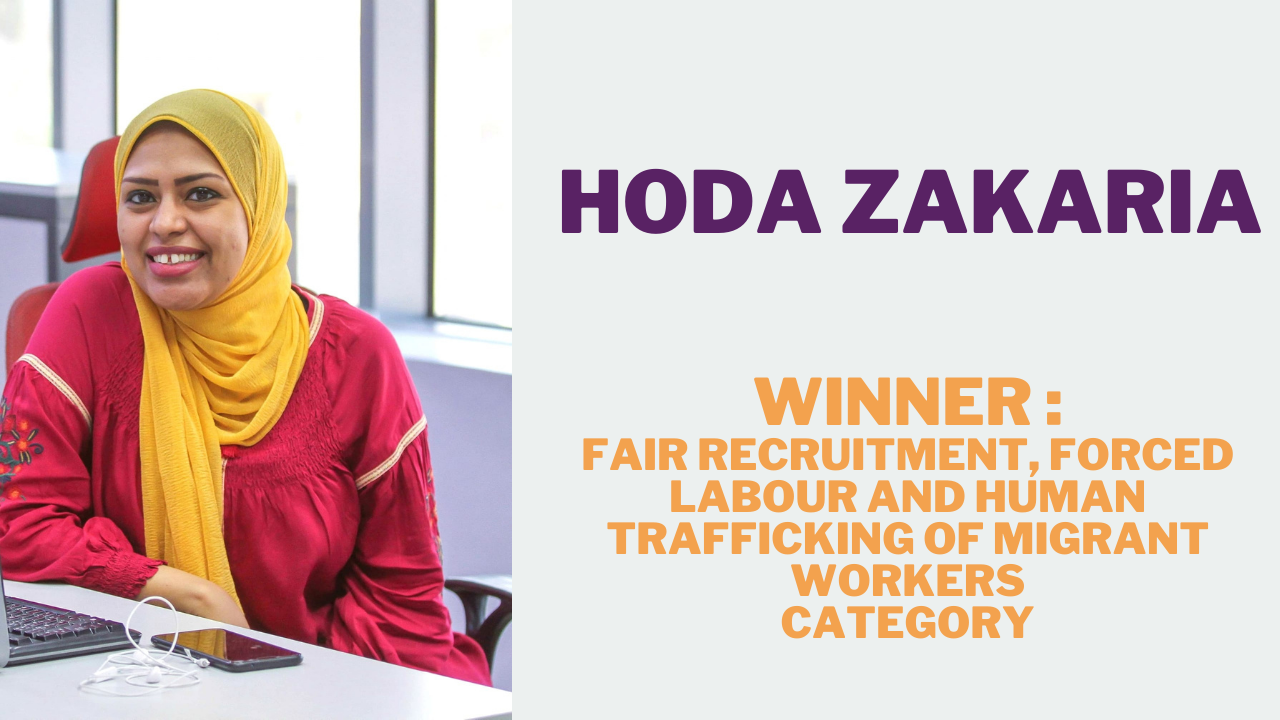The Nakonde Border Queens Who Trade Beyond Limits between Tanzania
Trending
Saturday June 14, 2025
Trending

In December 2020, African Women in Media (AWiM), in partnership with the African Union (AU), International Labour Migration (ILO) and International Organization for Migration (IOM) held the Labour Migration Media Awards ceremony.
Hoda Zakaria won the the top spot in the Fair recruitment, forced Labour and Human trafficking of migrant workers category.
In this interview with AWiMNews, Hoda discusses his experiences as a journalist and the story that won the prize.
My name is Hoda Zakaria, investigative reporter at Alyoum Alsabaa Egyptian newspaper. I graduated from the mass communication facult at Cairo University in 2010.
I am also a script writer, content manager and senior at the Documentary unit of Youm7 Newspaper.
I’ve received many awards such as Arab Reporters for Investigative Journalism Network with the International Center for Journalists (2013); best electronic investigation from the Women’s Commission at UN (2015); Arab journalism award (2016); Egyptian Journalists Syndicate award (2016), Egyptian Journalists Syndicate award (2017), and Award of the Danish-Egyptian Institute for Dialogue.
“The Terrible Tragedy of Human Trafficking” is an investigative report and reveals shocking secrets of smuggling Nigerian girls into Europe and the Middle East. The story also exposes the syndicate selling victims of Boko Haram by brokers using forged documents and the monthly royalties received for forced labor amounting to 150 billion dollars as total annual profits.
In this investigative report, “Youm 7” documents the complete journey of the victims with video and audio, from leaving their home countries until brokers take over and hand them over to families to work as servants. The report also observes all the illegal abuses and offences that girls are subject to. It is noted that those girls are being treated the same as commodities bought and sold.
They are furthermore subject to market laws of supply and demand. This report sheds light on what is going on behind the scenes of the trade which is ranked the third largest profitable illegal trade in the world (after arms and drugs trades), worth about 32 billion dollars, according to the Central Intelligence Agency (CIA). Annual revenue of forced labor alone, as a form of human trafficking, is estimated to reach 150 billion dollars, according to the International Labor Organization estimates in 2014.
The most difficult thing in this investigation was persuading the victims to talk and share what was happening to them. It also took a long time to document the stories from the Nigerian victims in Nigeria who worked in Egypt and went back to their hometown.
The best thing about my story is that after I published it, State institutions like parliament and Administrative Control Authority started to investigate the topic.
My advice to the women journalists is never give up, depend on information from open resources and search for foreign journalists who can help with the story you’re working on.
We’re not gonna spam. We’ll try at least.

Copyright 2020. African Women In Media
Copyright 2020. African Women In Media
Recent Comments